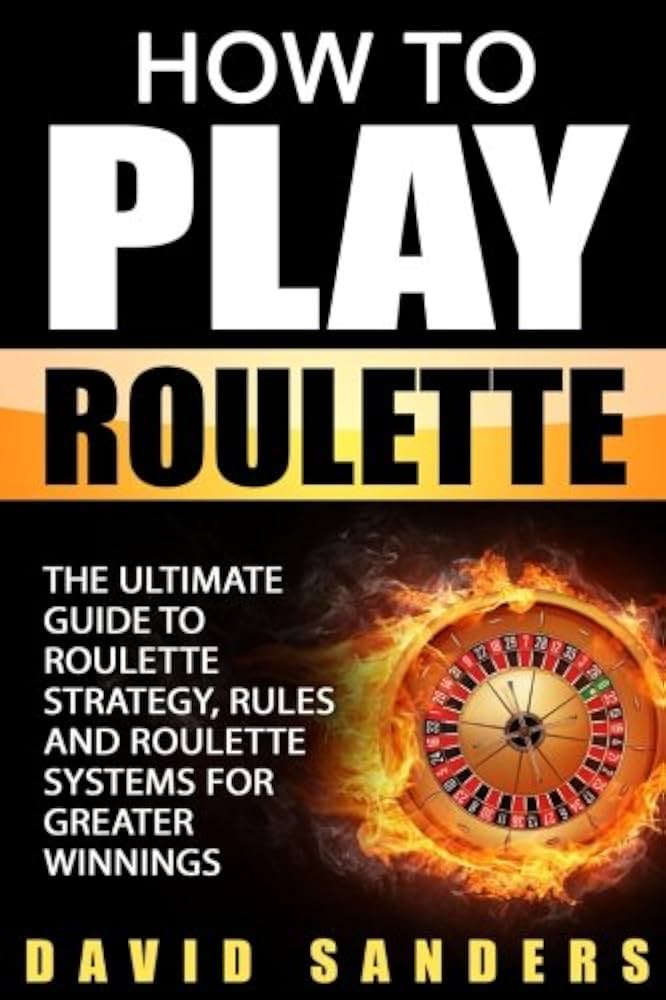Introduction to Roulette
How to play roulette and win – Roulette is one of the most iconic casino games in the world, captivating players with its spinning wheel and the chance for big wins. The game originated in 18th century France, derived from the Latin word “rota,” meaning wheel. Over the years, it has evolved into various forms, with European, American, and French roulette being the most popular variants. Each version has its unique rules and betting options, making roulette a thrilling experience for both new and seasoned gamblers.The basic rules of roulette involve players placing bets on where a small ball will land on a spinning wheel divided into numbered pockets.
The player can bet on a specific number, a group of numbers, or even colors like red or black. Understanding these rules is essential for making informed betting decisions and maximizing the player’s chances of success.
Types of Roulette
Roulette comes in three main types: European, American, and French. Each has its distinct features:
- European Roulette: This version has 37 pockets, numbered 0 to 36. The absence of a double zero gives players better odds compared to its American counterpart.
- American Roulette: Featuring 38 pockets, this variant includes a double zero (00) along with the standard numbers. This additional pocket increases the house edge, making it slightly less favorable for players.
- French Roulette: Similar to European roulette with 37 pockets, French roulette features some unique betting options, such as “La Partage” and “En Prison,” which can reduce the house edge further if the ball lands on zero.
Understanding the Roulette Wheel and Table
The layout of a roulette table is straightforward yet crucial for gameplay. The table features a betting area with numbers and colors corresponding to the roulette wheel. Players place their chips on this area to indicate their bets. The wheel itself contains numbered slots, alternating between red and black, with a green slot for the zero.The significance of the numbers and colors on the wheel is essential for strategic betting.
For instance, red and black numbers offer even-money payouts, while betting on specific numbers yields higher returns but at lower odds. The design of the European and American wheels differs primarily in the slot arrangement and the presence of the double zero.
Comparison of Roulette Wheels
When comparing the European and American roulette wheels, the following key differences emerge:
| Feature | European Roulette | American Roulette |
|---|---|---|
| Number of Slots | 37 (0-36) | 38 (0, 00, 1-36) |
| House Edge | 2.7% | 5.26% |
| Special Rules | La Partage, En Prison | No special rules |
Betting Options in Roulette
Roulette offers a variety of betting options, giving players the flexibility to choose their preferred risk level. The two main categories of bets are inside bets and outside bets.Inside bets are placed on specific numbers or small groups of numbers, with higher payouts but lower chances of winning. The outside bets cover larger groups of numbers or specific characteristics, such as color, with better odds but lower payouts.
Understanding these options is crucial for crafting a successful betting strategy.
Betting Options Breakdown
Here are some common betting options available in roulette:
- Inside Bets:
- Straight Up: Bet on a single number for a payout of 35 to 1.
- Split Bet: Bet on two adjacent numbers for a payout of 17 to 1.
- Street Bet: Bet on three numbers in a row for a payout of 11 to 1.
- Outside Bets:
- Red or Black: Bet on the color for a payout of 1 to 1.
- Odd or Even: Bet on whether the number will be odd or even for a payout of 1 to 1.
- Dozens or Columns: Bet on a group of 12 numbers for a payout of 2 to 1.
Strategies to Improve Winning Chances: How To Play Roulette And Win
Many players adopt specific strategies to enhance their winning potential at the roulette table. Popular strategies include the Martingale, Fibonacci, and D’Alembert systems, each offering unique approaches to betting.The Martingale strategy involves doubling the bet after each loss, aiming to recover previous losses with a single win. The Fibonacci system utilizes a sequence to determine bet amounts, while the D’Alembert strategy focuses on gradually adjusting bets based on wins and losses.
Understanding the pros and cons of these strategies is vital for informed gameplay.
Evaluation of Betting Strategies, How to play roulette and win
Here’s a breakdown of each strategy:
- Martingale:
Theoretically ensures a profit, but requires a large bankroll and can lead to significant losses.
- Fibonacci:
Offers a more measured approach, but can still lead to substantial losses during a losing streak.
Discover the crucial elements that make Best supplements for women’s health the top choice.
- D’Alembert:
Less aggressive than Martingale, providing a more sustainable betting approach, but slow in recovering losses.
Bankroll Management
Effective bankroll management is crucial for any roulette player. Setting limits on betting amounts helps to control spending and prevents chasing losses. Players should establish a budget before playing and stick to it, ensuring a more enjoyable experience without financial strain.A practical guide to bankroll management includes determining the total bankroll, deciding on the percentage to wager per session, and adjusting bets according to wins and losses.
Bankroll Management Guide
Here is a simple framework for managing your bankroll:
| Bankroll Size | Recommended Bet Amount |
|---|---|
| $100 | $1 – $5 |
| $500 | $5 – $25 |
| $1,000 | $10 – $50 |
Online vs. Live Roulette
Playing roulette online differs significantly from the live casino experience. Online roulette offers convenience and access to numerous games at any hour, often with attractive bonuses. However, it lacks the social interaction present in physical casinos, where players can share the thrill of the game.Advantages of online roulette include varied game formats, promotions, and the ability to play at one’s own pace.
Conversely, live roulette provides a more immersive atmosphere, with live dealers and real-time interaction, but may limit the number of players at a table.
Comparison of Experiences
Here are some key differences between online and live roulette:
- Accessibility: Online roulette can be played anytime, anywhere.
- Atmosphere: Live roulette creates a social and immersive environment.
- Game Variety: Online platforms often feature more game variations and betting options.
- Bonuses: Online casinos frequently offer bonuses that enhance the player experience.
Common Mistakes to Avoid
New players often fall into common pitfalls while playing roulette. Impulsive betting decisions, lack of strategy, and misunderstanding the game’s mechanics are prevalent issues that can lead to financial losses.To improve the chances of success, players should take their time, research betting options, and avoid chasing losses. Understanding the house edge is also critical, as it can significantly impact long-term outcomes.
Tips to Avoid Pitfalls
Here are some valuable tips to steer clear of common mistakes:
- Avoid Impulsive Bets: Take time to consider each bet carefully.
- Know the House Edge: Understand how the house edge affects your chances.
- Stick to Your Strategy: Consistency is key; don’t deviate from your planned approach.
Myths and Misconceptions about Roulette
Roulette is surrounded by numerous myths and misconceptions that can mislead players. Common beliefs, such as hot and cold numbers or the idea that previous spins influence future outcomes, are based on superstition rather than facts.Understanding the truth behind these myths is crucial for maintaining a rational approach to gambling. By debunking these misconceptions, players can focus on strategies based on probability rather than belief.
Common Myths Explained
Here are some prevalent myths and their factual corrections:
- Hot and Cold Numbers: The belief that certain numbers are “due” to hit, while others are “due” to miss, is a misconception; each spin is independent.
- Superstitions: Many players rely on personal rituals, yet they have no effect on the game’s outcome.
- Chasing Losses: The idea that one can recover losses quickly often leads to greater financial trouble; it’s essential to stick to a budget.
Legal and Ethical Considerations
Understanding the legal landscape and ethical considerations surrounding roulette is vital for responsible gambling. Various jurisdictions have different laws regarding casino operations and online gambling, which players should be aware of before placing bets.Ethical gambling involves recognizing when to quit and ensuring that gambling remains a form of entertainment rather than a financial burden. Players should be informed about their local gambling laws and practice responsible betting.
Legal Aspects of Playing Roulette
Key legal considerations include:
- Jurisdictional Laws: Laws vary significantly; players should familiarize themselves with local regulations.
- Age Restrictions: Most places require players to be at least 18 or 21 years old to gamble legally.
- Responsible Gambling: Understanding limits and recognizing problem gambling behaviors is essential for a healthy approach.

